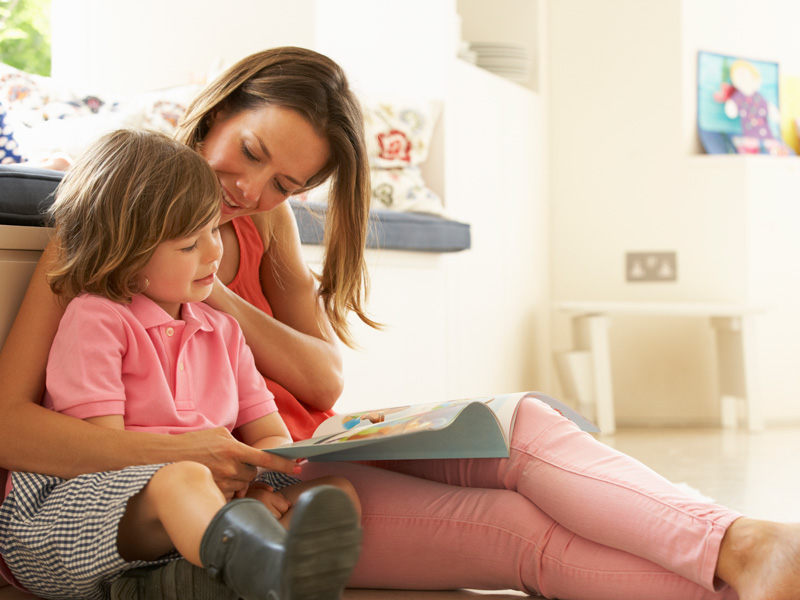Learning to read is a skill that will help your child succeed in school and in life. Children begin to learn reading skills long before they can actually read printed words. The preschool years are an important time for setting the foundation for your child’s reading skills.
Here are some simple ways to encourage your child’s reading development:
- Read together: Reading books together helps develop your child’s basic reading skills. Use an animated voice and face. Talk about the pictures in the book. Move your finger under the words as you read. Try to read with your child at least 15 minutes per day.
- Find books of interest: What does your child like? Princesses, animals, cars and trucks are common favorites.
- Have reading materials in your home: Children’s magazines and books are great print materials to have available around the house. The more they see these items, the more likely your child will pick them up and read them.
- Let your child read to you: Have your child “read” his or her favorite story to you. Children benefit by simply talking about the pictures and snuggling close.
- Cozy reading corner: Create a cozy reading area in your home with pillows, stuffed animals and books.
- Be a role model: Read in your free time. It helps your child see that reading is fun.
- Make reading an adventure: Build a reading fort by tossing a sheet over a table. Use a flashlight for a reading adventure.
- Book bag: Pack a book bag for appointments or traveling.
- Take letters outside: Encourage your child draw letters in the snow, dirt or sand with a stick.
- Point out text in daily life: Point out the name of a favorite snack, labels on clothing, or the different parts of a birthday card.
Promote reading
- Visit the library together. Find out where the children’s books are kept. Check to see if your library has story times for children.
- Limit TV time. This encourages play and reading. Leave the TV off for a couple of evenings and see where your child’s imagination runs.
- Keep reading to your child as he or she grows older. Make it a part of your daily routine, and your child will greatly look forward to this activity.
What is age-appropriate reading?
During early speech and language development, your child learns skills that are important to the development of literacy like reading and writing.
How your child plays, learns, speaks, acts and moves offers important clues about their development. Developmental milestones are things most children can do by a certain age.
Examples of a child’s literacy milestones for ages 3-5 years old:
- Sings a song or says a poem from memory such as “Itsy Bitsy Spider” or “Wheels on the Bus”
- Tells stories
- Tells you what they think is going to happen next in a book
- Remembers parts of a story
- Turns book pages one at a time
- Tells a simple story using full sentences
Keep in mind that kids develop at their own pace and on their own timetables.
Quality books for early readers
When it comes to choosing quality books, no matter your child’s age, choose books you and your child will enjoy. Young children often like to hear the same story repeatedly.
Here are tips to look for:
- Select books that promote imagination and solve problems in a creative way.
- Remember that illustrations still are a great fascination.
- Look for books with nursery rhymes and poetry.
- Predictable books allowing children to fill in the blanks, guess what comes next, or make predictions about sentences, phrases and words are intriguing.
- Present opportunities to learn about families and making friends.
It’s never too early — or too late — to start reading with your preschooler.
Learn more
- Read aloud to help your child learn to love books
- Create a reading space to enhance your child’s enjoyment of books
- Follow these backpack tips to help protect your child’s back
…
Posted In Children's, Family Medicine, Parenting
